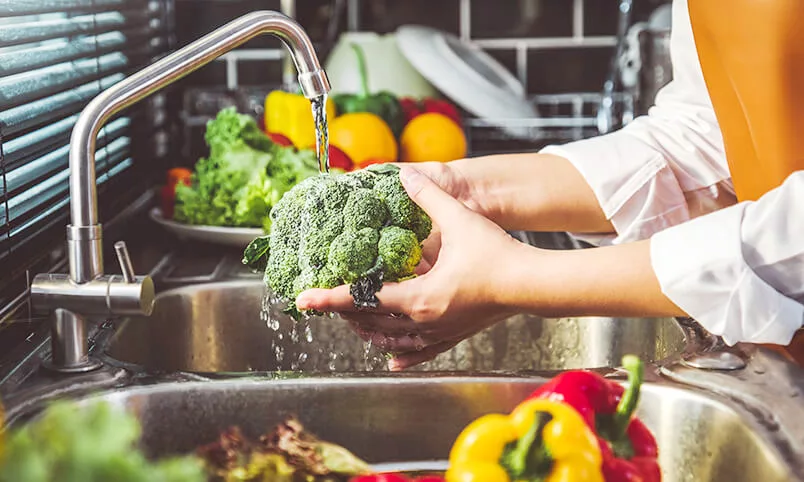Agriculture stakeholders have raised their voices against global pesticides double standard, urging Nigerians and the federal government to prioritise food safety over food security.
The groups made this known at the Heinrich Boll Foundation (HBS) launch of its Pesticides Atlas, a comprehensive overview of facts and figures on global pesticides production and consumption, its impact on people, biodiversity, the climate, and alternative solutions.
Pesticides Atlas findings indicate that this hazardous, and multibillion dollars ($130.7bn) business largely shared by four companies in Europe namely, Syngenta, Bayer, Corteva and BASF, has witnessed continued profits since 1994. The pesticides produced by these European companies are highly hazardous pesticides (HHPs) – that is damaging to human health and the environment, and are banned in EU countries. However, these companies continue to produce and export them to the global south – including Nigeria. This is the double standard of the global pesticides industry.
Today, about 80 per cent of pesticides frequently used by Nigerian farmers are HHPs – that can cause cancer, genetic defects, infertility and are harmful to unborn babies. Nigeria is the highest importer of pesticides in Africa, importing over 147, 477 tonnes of pesticides, followed by South Africa (74,850) and Ghana (64, 252) in 2020. The atlas identified about 385 million cases of pesticides poisoning globally. West Africa accounts for 33, 833, 710 million of those deaths. Synthetic pesticides further damage the soil. Pesticides residue in a soil can last decades, poisoning the foods planted in it, and washing into rivers and streams to contaminate water bodies.
Pesticides use have also negatively impacted Nigeria’s food export. In 2015, the EU banned the import of dried beans and other Nigerian agricultural products due to high levels of pesticides residue considered dangerous to the human body. Today, more than half of all the pesticides registered in Nigeria, and supplied by these countries, have been withdrawn from the European markets or are heavily restricted due to their high toxicity.
However, this is not where it ends. Asia is a part of this hazardous, multibillion dollar business. A recent study of the situation of HHPs in Nigeria by the Sustainable Research & Action for Environmental Development (STRADEV) using data by NAFDAC broken down into active agents, country of imports etc., showed China and India, accounted for about 80 per cent of HHPs imported into the country. Of these HHPs, the highly prevalent active agent is glyphosate. Nigeria imports N9billion worth of glyphosates, and more than 60 per cent of it comes from China. Meantime, glyphosates have been banned in both China and India. However, in Nigeria, the chemical is not in the list of soon-to-be-banned pesticides.
So why has the EU, Asia and India allowed the production and export of HHPs to the Global South – Nigeria and Africa included?
Ahmed Tiamiyu of Community Action Against Plastic Waste said it’s all excuses. “They (the producers) say ‘but the people want it. Without pesticides, there will be food insecurity, job loses’. That is not true. Before the use of chemicals in our country, farmers farmed using indigenous traditional farming systems that still work today. There are also the agroecology practices, sustainable farming methods etc. We just need to ensure that people are enlightened on the latter practices.”
Hence, the organisation’s collaboration with European Environmental Bureau (EEB), EU-based NGOs, African and Nigerian agricultural organisations to amass signatures on a petition letter to the Nigerian government to ban use of pesticides in the country, especially those banned in the EU, China, India among others, to end the pesticides double standard.
“We need more voices (Nigerian organisations) to sign the petition. The more organisations that sign on the better. We just want the government to know the stand of Nigerian people with regards to this double standard. When that is clear, we want government to give us their review, how they want to take this action.”
It is also advocating the establishment of a local pesticide policy that mandates transparency from pesticides producers on active ingredients used, and the right knowledge by all users of such products.
Likewise, it is calling for Nigeria’s ratification of the Bamako Convention to ensure that restricted pesticides don’t find their way from another country to Nigeria and vice versa.
STRADEV’s Victor Fabunmi, advised individuals, farmers and government to prioritise food safety (healthful food) over food security (food production quantity).
He noted that in the bid to ensure food security and promote agriculture, government is fixated on conventional farming systems, which amounts to huge investment in fertiliser, production and sales. But how safe is the food that we produce?” he asked.
“There is need to sensitise consumers to prioritise food safety over food security. Nobody will choose beans with weevil over one without weevils. We should be able to ask “why is there weevil in one and not the other?” It might be that the one without weevils have been preserved with pesticides.
“Part of how we know something is pesticide free, is if you find some pests in it. We should not reject such food in the market because it is a pointer to the fact that it might be safer than those free from all forms of pest.”
Fabunmi urged use of home gardens that can cater healthily to a family’s weekly vegetables needs. “We should also identify, encourage and patronize organic farmers.”
For the director of HBF Nigeria, Jochen Luckscheiter, the fact that the German government is committed to creating laws that will prohibit the export of pesticides banned in the EU owing to their harmful effects is a welcome development. She however noted that beyond stopping the import of banned pesticides into the country, “Nigeria should chart a deliberate path towards an overall reduction in pesticide use.”





